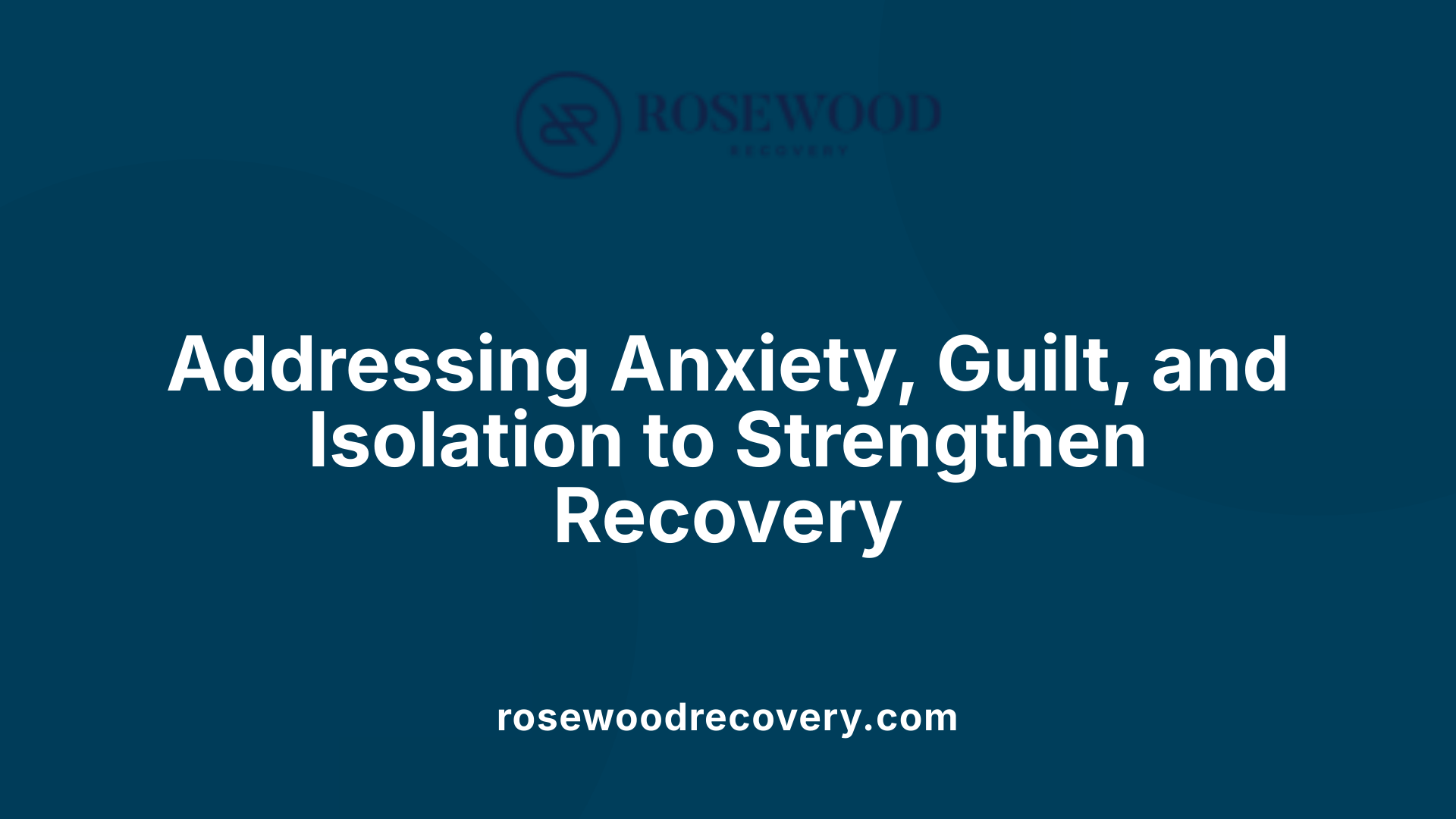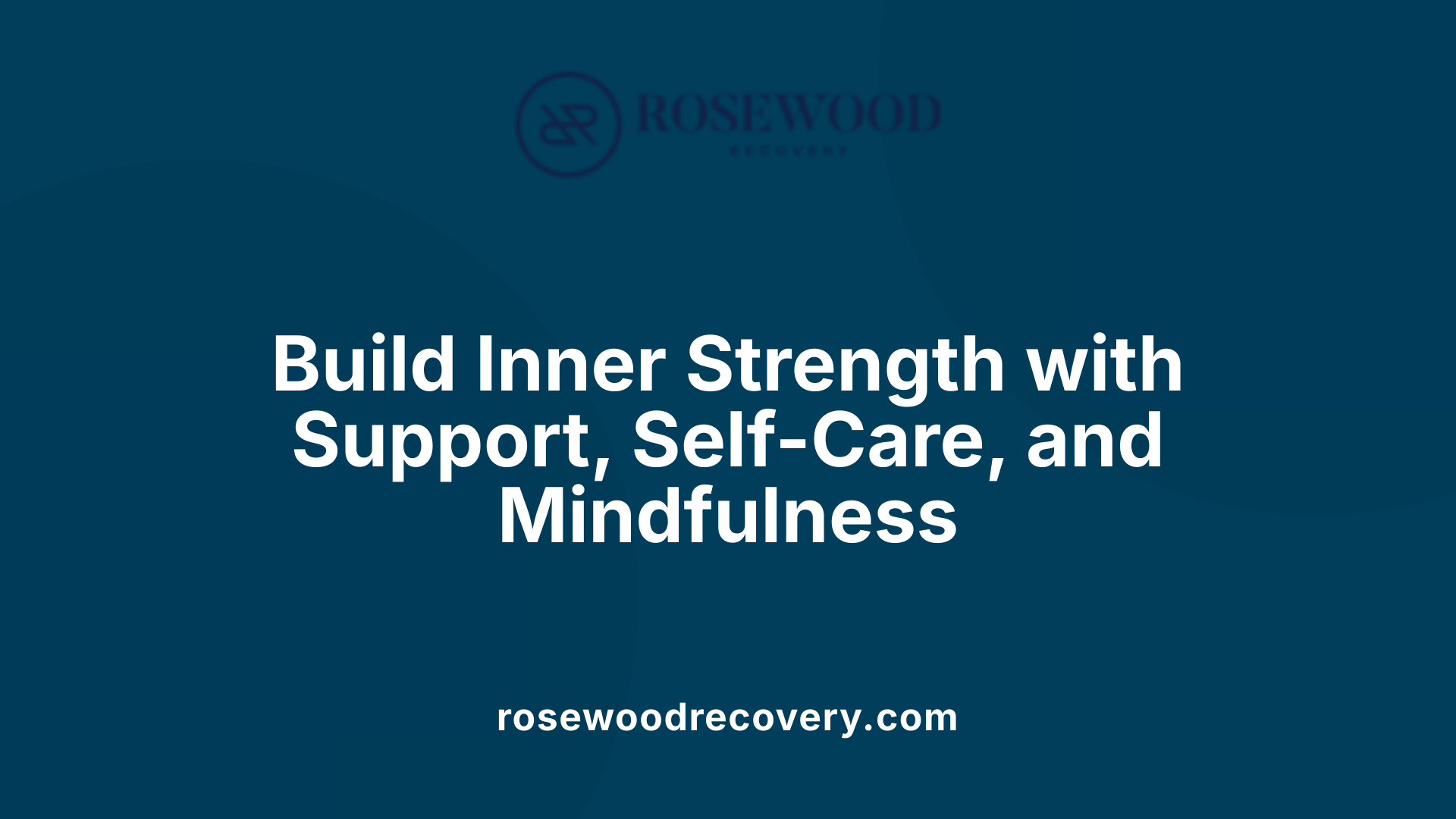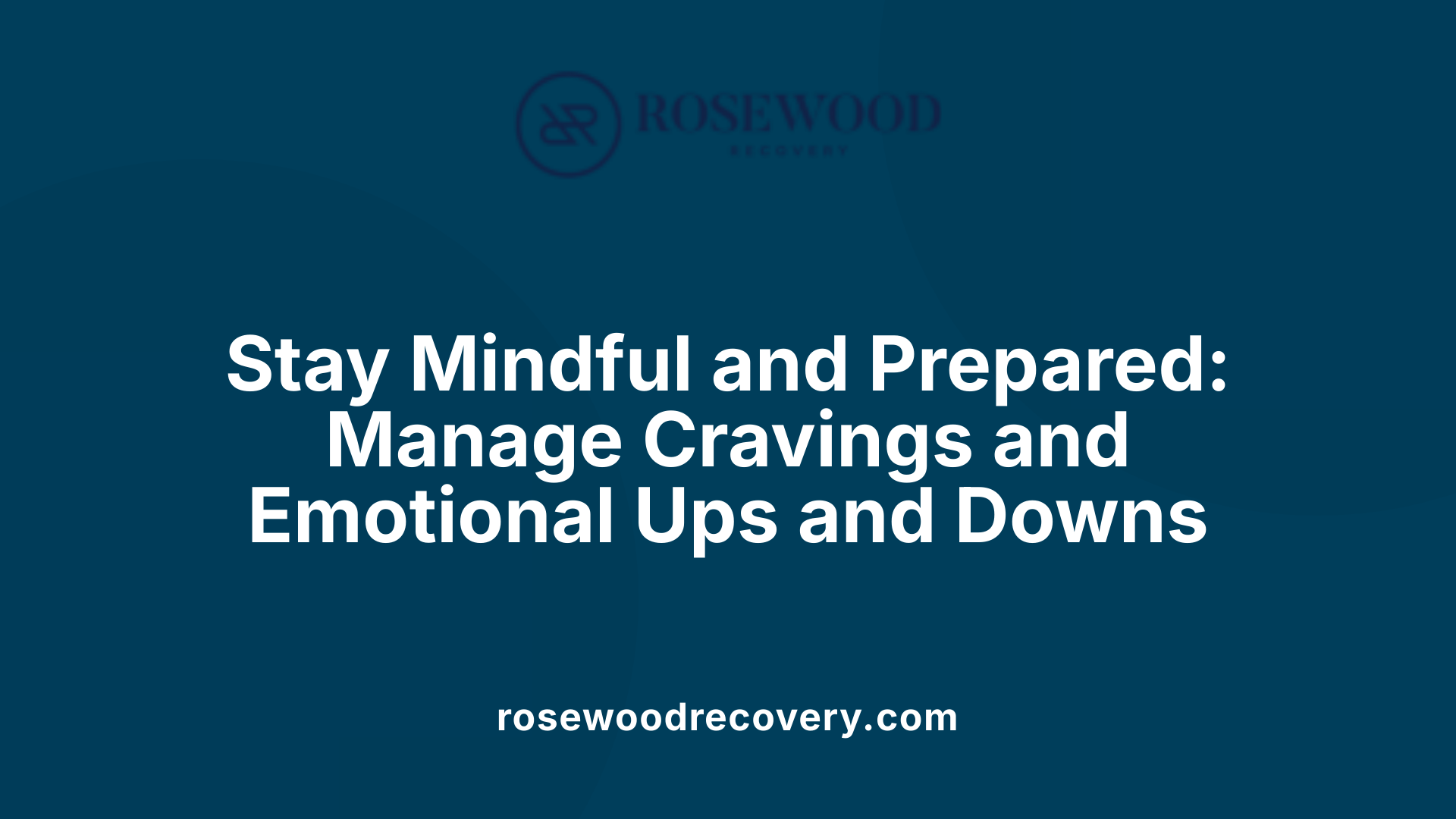Understanding Emotional Challenges in Early Recovery
Embarking on recovery from addiction is a transformative journey that involves not only physical detoxification but also significant emotional restructuring. During the initial stages, individuals are often flooded with intense feelings like mood swings, anxiety, guilt, shame, and anger. Recognizing these emotions as a normal component of the recovery process is crucial. The body's neurochemical shifts and psychological adjustments contribute to heightened emotional vulnerability, making it vital to develop effective coping strategies that foster resilience and stability.
Common Emotional Challenges in Early Recovery

What are common emotional challenges faced during the early stages of recovery from addiction?
Early recovery from addiction can be an emotionally turbulent time. Individuals often experience intense mood swings, impulsivity, and irritability as their brain chemistry begins to stabilize. These mood shifts can be unpredictable, making it harder to maintain emotional balance.
Heightened anxiety and depression are prevalent during this phase. Many people report feelings of overwhelming guilt and shame related to past actions while under the influence. These emotions can linger, affecting self-worth and confidence.
Cravings are not only physical but deeply intertwined with emotional dysregulation. They often surface during moments of stress or vulnerability, triggered by emotional triggers that stem from unresolved trauma or environmental cues.
Feelings of loneliness are common, especially as individuals may distance themselves from old friends and social settings associated with substance use. Guilt and shame further contribute to isolation, creating a cycle that can be difficult to break.
Anger, frustration, and fear of relapse also pose significant emotional hurdles. These feelings may mask deeper emotions like despair or resentment, making it crucial to develop healthy ways to express and manage them.
Dealing with withdrawal symptoms, which can include physical discomfort and emotional distress, further complicates recovery. Many individuals also navigate unresolved trauma or mental health conditions such as co-occurring depression and anxiety, adding to their emotional vulnerability.
Building emotional resilience during this period involves learning and applying coping strategies such as mindfulness, engaging in support groups, and seeking therapy. Addressing underlying trauma, developing self-awareness, and establishing a strong support network are vital steps to overcoming these challenges and maintaining long-term sobriety.
Effective Strategies to Manage Emotional Overwhelm

What strategies can help manage emotional overwhelm in early recovery?
Managing emotional overwhelm during early recovery from substance use can be challenging, but various techniques can help individuals navigate this turbulent phase. Incorporating mindfulness practices such as meditation and deep breathing exercises helps to keep the mind centered and reduces emotional reactivity. These simple routines can calm the nervous system and foster a sense of control.
Engaging in activities that divert attention away from distressing feelings is also beneficial. Hobbies, walking, art, or listening to music can serve as healthy outlets, helping to shift focus and regulate emotions effectively.
Building a robust support system is crucial. Therapy sessions, support groups, and trusting relationships with friends or family members offer emotional safety and guidance. Sharing feelings and gaining insights from others who understand recovery struggles can significantly ease feelings of isolation.
Establishing a daily routine that incorporates regular physical activity, nutritious meals, and adequate sleep supports emotional stability. Exercise releases endorphins, natural mood lifters, while quality sleep and nutrition nourish the body and mind.
Furthermore, learning specific emotional regulation techniques like journaling helps process feelings and reflect on triggers. Cognitive reframing assists in changing negative thought patterns, while grounding exercises, such as focusing on sensory details, anchor individuals in the present moment.
Using these strategies collectively provides a comprehensive approach to managing emotional overwhelm. Over time, these tools strengthen resilience, reduce cravings, and promote ongoing recovery success.
Coping Techniques for Stress, Anxiety, and Depression
How can individuals cope with emotional stress, anxiety, and depression during recovery?
Recovering from substance use disorder involves navigating a range of challenging emotions. To handle stress, anxiety, and depression effectively, individuals benefit from adopting a combination of therapeutic and self-care strategies.
Engaging in therapy, such as cognitive-behavioral therapy (CBT) or dialectical behavior therapy (DBT), provides tools to reshape harmful thought patterns and develop better emotional regulation skills. Support groups, like 12-step meetings or local recovery communities, offer shared understanding and encouragement, reducing feelings of isolation.
Mindfulness practices, including meditation and deep breathing exercises, help ground individuals in the present moment and lessen emotional overwhelm. Physical activity, such as walking, yoga, or jogging, releases endorphins, natural mood boosters that alleviate symptoms of depression and reduce stress.
Establishing a stable daily routine is vital. Sufficient sleep, balanced nutrition, and scheduled recovery activities create a foundation of stability and predictability. Incorporating journaling and creative outlets—like art or music—helps process emotions, increase self-awareness, and express feelings safely.
Setting boundaries and avoiding environmental triggers are critical in preventing emotional setbacks. Recognizing and steering clear of toxic relationships or stressful situations help maintain progress.
Building a robust support network is essential. Participating in support groups, staying connected with sober friends, and consulting mental health professionals when needed ensure ongoing emotional backing.
Combining these approaches into daily habits facilitates emotional healing, resilience, and helps prevent relapse. Remember, managing emotions during recovery is a gradual process requiring patience, consistency, and self-compassion.
Building Emotional Resilience and Stability

What are effective ways to build emotional resilience and stability during early recovery?
Building emotional resilience during early recovery is essential for maintaining sobriety and managing the emotional ups and downs that naturally occur. A foundational practice is mindfulness and relaxation techniques. Techniques such as meditation, deep breathing exercises, and body scans help calm the mind, reduce anxiety, and improve emotional regulation.
Engaging in healthy activities can serve as powerful coping strategies. Regular physical activity like walking, yoga, or strength training releases endorphins—natural mood lifters—that help combat depression and anxiety. Creative pursuits such as journaling, art, music, or photography enable emotional expression and reflection, promoting self-awareness.
Establishing a support network is another vital component. Connecting with sober friends, participating in support groups, or engaging with mental health professionals creates a sense of community. These social resources provide encouragement, understanding, and accountability, which bolster resilience during setbacks.
Adopting a growth mindset by viewing challenges as opportunities for learning encourages persistence. Practicing self-compassion—acknowledging mistakes without harsh judgment—helps rebuild self-esteem and fosters resilience.
Lastly, prioritizing self-care by ensuring adequate sleep, proper nutrition, and regular routines supports overall emotional health. When necessary, seeking professional guidance from therapists or counselors provides additional tools and personalized strategies to reinforce emotional strength and prevent relapse.
| Strategy | Description | Benefits |
|---|---|---|
| Mindfulness & Relaxation | Meditation, deep breathing | Reduces anxiety, improves focus |
| Physical Activities | Exercise, yoga, outdoor walks | Boosts mood, relieves stress |
| Creative Pursuits | Journaling, music, art | Enhances self-awareness, emotional expression |
| Social Support | Support groups, therapy | Provides encouragement and accountability |
| Growth Mindset & Self-Compassion | Reframing setbacks, positive affirmations | Builds resilience, self-esteem |
| Self-Care Routine | Adequate sleep, nutrition, daily structure | Maintains stability, reduces overwhelm |
By integrating these strategies into daily life, individuals in recovery can develop a resilient mindset, better equipped to handle life's challenges and sustain long-term sobriety.
Handling Emotional Fluctuations and Cravings

How can someone handle emotional fluctuations and cravings during initial recovery stages?
Managing emotions and cravings early in recovery can be challenging, but with effective strategies, individuals can navigate this phase successfully.
One of the most helpful approaches is practicing mindfulness. Techniques such as meditation, deep breathing exercises, and urge surfing—where you observe cravings without acting on them—allow you to acknowledge feelings without surrendering to them. These practices foster a sense of calm and acceptance, reducing the intensity of emotional upheavals.
Recognizing what triggers cravings is vital. Keeping a journal to reflect on emotional and situational triggers helps identify patterns. This awareness enables you to develop personalized coping strategies and avoid high-risk situations.
Maintaining a regular routine supports emotional stability. Prioritizing balanced nutrition, getting enough sleep, and engaging in physical activity like walking or yoga helps regulate mood swings and reduce stress.
Building a strong support network—whether through community support groups, sober friends, or professional therapists—provides an outlet for sharing feelings and gaining encouragement. This social support is crucial during difficult moments.
Furthermore, creating a relapse prevention plan tailored to your needs offers guidance and confidence. Incorporating healthy self-care practices, such as engaging in hobbies, practicing relaxation techniques, and setting boundaries, reinforces resilience.
By integrating these strategies—mindfulness, trigger awareness, routines, support systems, and self-care—you can better manage the emotional and physical challenges of early recovery, paving the way for sustained sobriety and well-being.
Embracing the Journey to Emotional Recovery
Managing emotional overwhelm in early recovery is a multifaceted process that requires patience, awareness, and strategic action. Recognizing that intense feelings like guilt, shame, anxiety, and mood swings are normal helps normalize the experience and reduce self-criticism. Employing evidence-based techniques such as mindfulness, journaling, cognitive reframing, and grounding exercises offers practical tools to navigate emotional turbulence. Building a support system through therapy, support groups, and healthy relationships provides essential emotional safety nets. Committing to self-care routines—prioritizing sleep, nutrition, physical activity, and creative pursuits—strengthens resilience and promotes stability. Lastly, cultivating an attitude of self-compassion and understanding that recovery is a journey filled with growth and learning will empower individuals to overcome setbacks and maintain a balanced, sober life.
References
- 7 Tips to Improve Your Emotional Regulation in Recovery
- 7 Common Emotions During Sobriety and How to Cope ...
- Managing Emotions During Detox: Coping with Anxiety & ...
- Coping Skills for Mental Health in Recovery
- Coping Mechanisms for Stress and Anxiety in Early Recovery
- Guide to Stress Management in Recovery
- How Do You Navigate Emotional Challenges During ...




